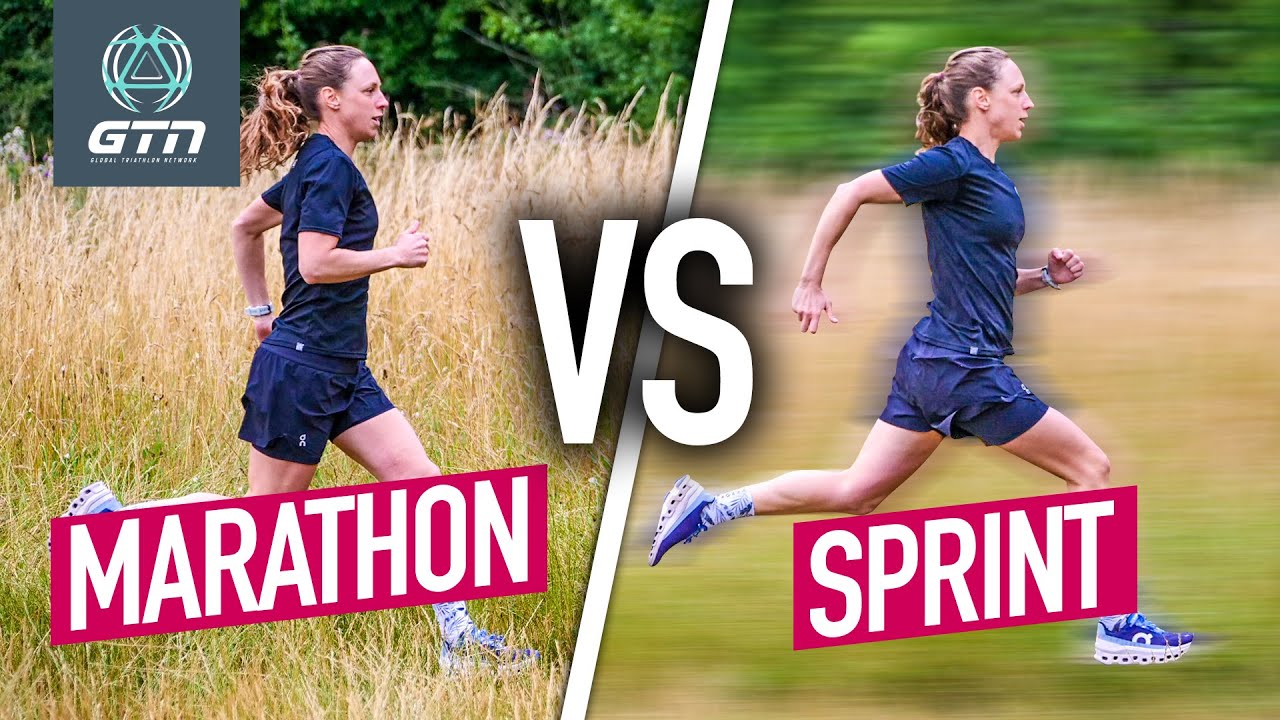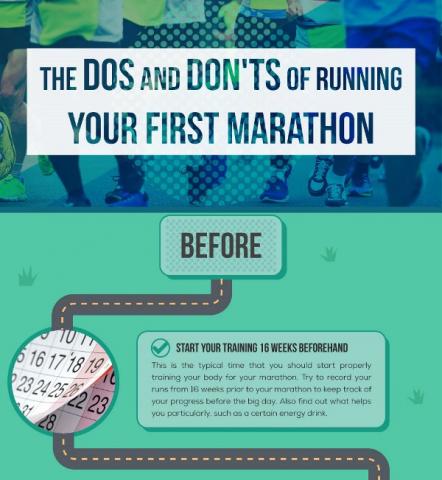What’S the Difference between Marathon And Run
A marathon is a long-distance running event of 26.2 miles, while a run can be any distance. Marathons are typically more competitive and require specific training.
Running enthusiasts participate in marathons to push their limits and achieve personal goals. On the other hand, casual runners often enjoy shorter runs for fitness and leisure. Both activities offer numerous health benefits, such as improved cardiovascular endurance and mental well-being.
Whether you’re training for a marathon or simply lacing up your shoes for a neighborhood run, the joy of running remains a universal experience. Understanding the differences between marathons and runs can help you choose the best activity to suit your fitness goals and preferences.
1. History Of Marathon And Run
When it comes to the history of marathon and run, it is fascinating to uncover their origins and how they have evolved over time. In this section, we will delve into the origins of marathon and the evolution of running.
1.1 Origins Of Marathon
The origins of the marathon trace back to ancient Greece, specifically to the legendary story of Pheidippides. According to the ancient Greek historian Herodotus, Pheidippides was a messenger tasked with delivering a crucial message from the city of Marathon to Athens in 490 BC.
Legend has it that Pheidippides ran the distance of approximately 25 miles or 40 kilometers to deliver the message, which informed the Athenians about the Greek victory over the Persians in the Battle of Marathon. It is said that upon reaching Athens, Pheidippides exclaimed, “Rejoice, we conquer!” before collapsing and dying from exhaustion.
This heroic act of Pheidippides became the inspiration for the modern-day marathon event. In honor of his feat, the first organized marathon race was held during the inaugural modern Olympic Games held in Athens, Greece, in 1896.
1.2 Evolution Of Running
The evolution of running can be traced back even further, with early humans relying on running as a means of survival. In primitive times, running was primarily utilized for hunting and gathering. Humans would use their inherent endurance and speed to chase down prey or to escape from dangerous situations.
Over time, running transitioned from a necessity to a recreational activity and sport. In ancient civilizations, running was part of religious rituals, military training, and even competitive events. The Romans, for example, held running races as part of the ancient Olympic Games.
Fast forward to the modern era, running has become a hugely popular activity for both recreational enthusiasts and competitive athletes alike. With the establishment of organizations such as the International Association of Athletics Federations (IAAF) and the widespread popularity of road races, marathons, and track and field events, running has truly become a global phenomenon.
Today, people run for various reasons, including improving fitness, achieving personal goals, raising money for charitable causes, or simply for the sheer enjoyment of it. The sport continues to evolve, with advancements in training techniques, equipment, and nutrition, enabling runners to push the boundaries of their capabilities.
In conclusion, the history of marathon and run is a testament to the enduring human spirit and the drive for physical and mental achievements. From the heroic legend of Pheidippides to the modern-day pursuit of running excellence, these activities have left an indelible mark on our society and will continue to inspire generations to come.
:max_bytes(150000):strip_icc()/difference-between-running-and-jogging-2911122-0993-7194b2f8742b43c288ee111f0f7c8033.jpg)
Credit: www.verywellfit.com
2. Understanding The Physical Differences
Marathons are longer races typically covering a distance of 26. 2 miles, while runs refer to shorter races of varying lengths. The physical demands and training required for marathons are greater than those for runs, making them more challenging in terms of endurance and stamina.
Marathons and runs differ in several key physical aspects. Let’s delve into the specifics to grasp the distinctions.
2.1 Muscular Training
- Marathons call for greater endurance and muscle strength than regular runs.
- Integrating muscle training exercises is crucial for marathon preparation.
- Your muscles endure prolonged strain during marathons, demanding proper conditioning.
2.2 Endurance Levels
- Marathons test endurance levels more intensely than shorter runs.
- Building long-term stamina is essential for successfully completing a marathon.
- Endurance training plays a vital role in preparing for the challenges of a marathon.
3. Comparison Of Training Regimens
The difference between marathon and run training regimens lies in their specific goals and intensity levels. Marathon training focuses on endurance and long-distance running, while run training encompasses a broader range of distances and speeds. Both regimens require a consistent and structured approach to achieve optimal results.
The training focus in marathon and running differs significantly. Let’s delve into the specifics:3.1 Training Focus In Marathon
– Endurance: Emphasis on building long-distance stamina. – Pace Variation: Training includes tempo runs and interval training. – Mental Preparation: Incorporates long runs to simulate race conditions. – Nutrition: Training plans incorporate fueling strategies for prolonged efforts.3.2 Training Focus In Running
– Speed Work: Prioritizes shorter, faster intervals for overall speed improvement. – Consistency: Focuses on regular shorter runs to maintain fitness levels. – Form and Technique: Involves drills and exercises to improve running efficiency. – Rest and Recovery: Allows time for adequate rest between sessions for injury prevention. In a nutshell, marathon training centers on endurance and mental stamina, while running training emphasizes speed and consistency.
Credit: m.youtube.com
4. Psychological Variances In Marathon And Running
Discover the psychological differences between marathon and running in terms of endurance and mindset. Understanding these variances can help athletes tailor their training and mental preparation for each type of race. Embracing these distinctions is crucial for success in both marathon and running events.
Engaging in marathon and running activities not only differ physically, but they also present distinct psychological variances. Understanding these differences is crucial for individuals who aim to venture into these endurance sports. In this section, we will explore two key aspects related to the psychological variances in marathon and running: mental resilience in marathon and the psychological benefits of running.
4.1 Mental Resilience In Marathon
When it comes to marathon running, mental resilience plays a vital role in successfully completing the grueling 26.2-mile race. The ability to overcome physical and mental challenges throughout the long-distance race requires unwavering mental strength. Endurance athletes participating in marathons must face fatigue, pain, and the temptation to give up, but it is their mental resilience that enables them to push through and reach the finish line.
Mental resilience in marathon involves:
- Developing a positive mindset that embraces challenges
- Utilizing coping mechanisms to deal with physical and mental discomfort
- Setting realistic goals and maintaining focus throughout the race
- Remaining motivated and determined to overcome obstacles
This mental resilience can extend beyond the race itself and have positive impacts on other areas of life, enhancing problem-solving skills, and boosting self-confidence.
4.2 Psychological Benefits Of Running
Running, regardless of the distance, offers several psychological benefits that can improve overall well-being. These benefits go beyond physical fitness and extend to mental health.
Some key psychological benefits of running include:
- Stress Reduction: Running can act as a powerful stress reliever, promoting the release of endorphins that elevate mood and reduce anxiety.
- Improved Cognitive Function: Regular running has been linked to enhanced cognitive abilities, including better memory, attention, and problem-solving skills.
- Elevated Mood: Running triggers the release of neurotransmitters like serotonin and dopamine, which are known as “feel-good” chemicals, leading to a positive and uplifted mood.
- Increased Self-Esteem: Accomplishing running goals and surpassing personal bests can boost self-esteem and foster a sense of achievement.
- Social Connection: Participating in running communities, events, or even virtual challenges can provide a sense of belonging and social support, improving mental well-being.
It is important to note that the psychological benefits of running can be achieved through various forms of running, including marathon training or shorter distances. So whether you prefer the ultramarathon challenge or shorter runs, running can positively impact both your physical and mental health.
5. Impact On Overall Health And Well-being
5. Impact on Overall Health and Well-being
5.1 Long-term Health Effects
Marathons and runs have differing long-term effects on health. The rigorous training involved in marathon preparation can lead to improved cardiovascular health and increased lung capacity. Over time, this can reduce the risk of heart disease and enhance overall stamina. On the other hand, regular running, even at moderate intensities, can have similar long-term health benefits, with a specific focus on promoting weight management and bone density. Both activities contribute to long-term health, albeit with varying focal points.
5.2 Well-being And Lifestyle
Participating in marathons can have profound effects on well-being and lifestyle. The sense of achievement and accomplishment after completing a marathon can boost self-esteem and mental resilience. Additionally, the social aspect of joining marathon events can foster a strong sense of community and connectedness. Regular runs, on the other hand, provide an accessible and adaptable means of improving overall well-being. Whether it’s a solo jog or a group run, the stress-reducing effects and mood-boosting benefits are widely recognized. Both activities contribute to an enriched sense of well-being and a healthier lifestyle.

Credit: www.fleetfeet.com
Frequently Asked Questions For What’s The Difference Between Marathon And Run
What Is Considered A Marathon?
A marathon is a race that covers 26. 2 miles, typically done on roads. It is considered the ultimate distance challenge for runners.
What Is The Difference Between A Race And A Marathon?
A race is a general term for any organized competition involving running, while a marathon is a specific type of race that covers a distance of 26. 2 miles.
What Is A 5k Run Called?
A 5K run is called a 5K race, which covers a distance of 5 kilometers.
Conclusion
To sum up, although both marathon and run involve running, there are distinct differences between them. Marathons are long-distance races of 26. 2 miles, demanding endurance and mental strength. On the other hand, running can refer to any form of jogging or sprinting, typically for shorter distances.
It’s essential to understand these disparities to choose the right activity that aligns with your fitness goals and preferences. So lace up your shoes, hit the road, and enjoy the thrill of either a marathon or a run!






